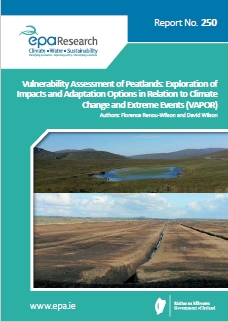
Authors: Florence Renou-Wilson and David Wilson, September 2018
Year: 2018
The climate changes predicted for Ireland by the end of the 21st century will have significant impacts on drained, rewetted and natural peatland systems. The VAPOR project was established to inform a transition to a climate-resilient Ireland by providing science-based information on the vulnerability of peatlands to climate change, including extreme weather events.
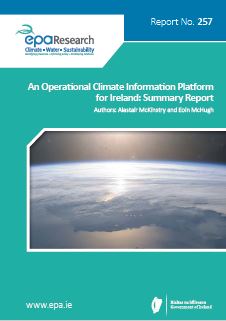
Authors: Alastair McKinstry and Eoin McHugh, August 2018
Year: 2018
Information on climate change and options for adaptation can be complex and inaccessible to key stakeholders and decision makers. This project has developed an Operational Climate Information Platform (OCIP) to disseminate the current data and guidance on climate change for Ireland. The OCIP is scalable, maintainable and can be continuously updated with new data that are generated from operational observation systems and research.
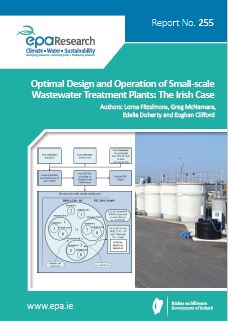
Authors: Lorna Fitzsimons, Greg McNamara, Edelle Doherty and Eoghan Clifford, August 2018
Year: 2018
There are many variables which must be considered when designing and operating a wastewater treatment system. The key objectives of this research were to develop software tools to assist in the selection and management of wastewater treatment systems, with a specific focus on small wastewater treatment plants in Ireland.
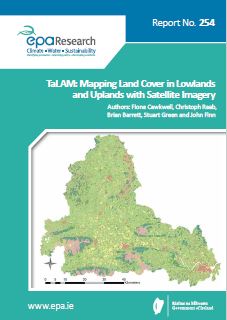
Authors: Fiona Cawkwell, Christoph Raab, Brian Barrett, Stuart Green and John Finn, August 2018
Year: 2018
The Towards Land Cover Accounting and Monitoring (TaLAM) project is part of Ireland’s response to creating a national land cover mapping programme. Its aims are to demonstrate how the new digital map of Ireland, Prime2, from Ordnance Survey Ireland (OSI), can be combined with satellite imagery to produce land cover maps.
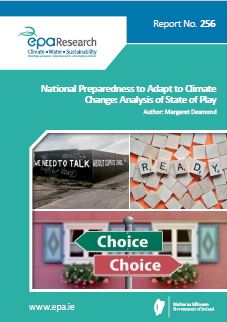
Author: Margaret Desmond, June 2018
Year: 2018
The goal of international and national climate adaptation policy is the transition to a low-carbon, climate-resilient society and economy. This new assessment interrogates in detail Ireland’s preparedness for adaptation action, with a focus on seven key areas related to the adaptation plan-making process.
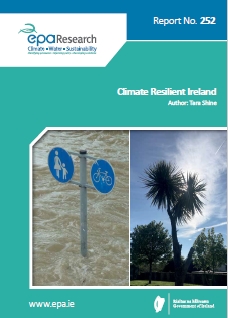
Author: Tara Shine, June 2018
Year: 2018
This study defines a common understanding of what constitutes a climate resilient Ireland, it examines climate resilient pathways which Ireland can take to transition to a low-carbon, climate resilient society and meet its goals as set out in the Climate Act 2015. Finally, it identifies eight factors which should inform the choice of those pathways.
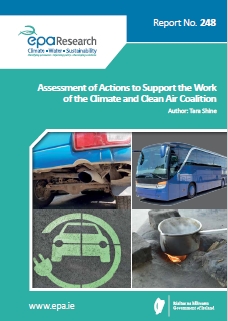
Author: Tara Shine, June 2018
Year: 2018
Ireland became a member of the Climate and Clean Air Coalition (CCAC) in 2013 to demonstrate commitment to climate and air pollution issues and to improve policy coherence between climate and air policy. This small-scale study, identifies ways in which Ireland can contribute to and benefit from its participation in the CCAC. The study pays particular attention to CCAC efforts to reduce Short-lived Climate Pollutants (SLCPs).
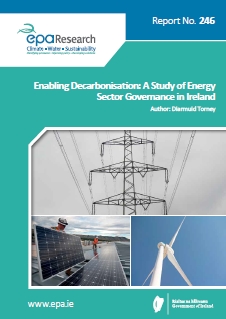
Author: Diarmuid Torney, June 2018
Year: 2018
Ireland has strict decarbonisation targets to meet by 2050. This study is concerned with which governance institutions could enable this transition to a low carbon economy and society. Through analysis of the roles and mandates of a number of governing state institutions in the energy sector, the study makes a number of recommendations for how governance arrangements could be strengthened to better facilitate decarbonisation.
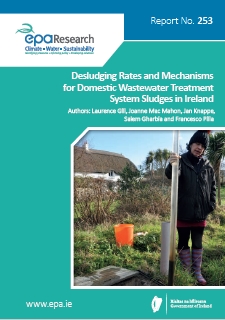
Authors: Laurence Gill, Joanne Mac Mahon, Jan Knappe, Salem Gharbia and Francesco Pilla, May 2018
Year: 2018
This study has produced a set of guidelines for owners of septic tanks and packaged treatment systems to help to address the lack of understanding among homeowners of how their domestic wastewater treatment systems operate and to encourage responsible operation and maintenance.
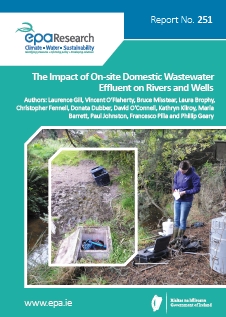
Authors: Laurence Gill, Vincent O’Flaherty, Bruce Misstear, Laura Brophy, Christopher Fennell, Donata Dubber, David O’Connell, Kathryn Kilroy, Maria Barrett, Paul Johnston, Francesco Pilla and Phillip Geary, May 2018
Year: 2018
This research project evaluated the impact of domestic wastewater treatment system (DWWTS) effluent as a health hazard to consumers of groundwater from private wells and also a source of nutrient water pollution to surface water in small catchments.
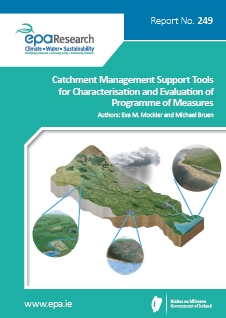
Authors: Eva M. Mockler and Michael Bruen, May 2018
Year: 2018
Nutrient enrichment and eutrophication can negatively impact on freshwater ecosystems, estuarine and coastal waters. As a result of improvements in nutrient management and regulation, there has been a large reduction in total phosphorus, total ammonia and total nitrogen emissions from Irish catchments in recent decades.
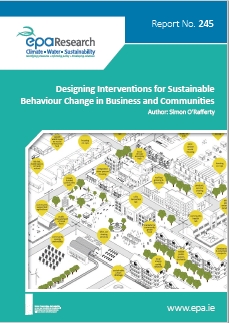
Author: Simon O’Rafferty, May 2018
Year: 2018
Sustainable consumption and production demands behaviour changes. Policymakers and regulators already apply a range of interventions and incentives with a view to changing individual and organisational behaviour. This includes fiscal incentives, subsidies, pricing mechanisms and market-based instruments, standards, eco-labels and communication, business support programmes and curriculum development.
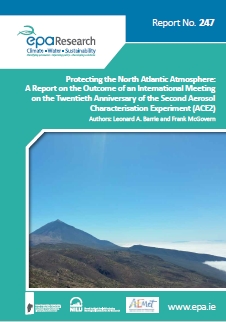
Authors: Leonard A. Barrie and Frank McGovern, May 2018
Year: 2018
The North Atlantic Ocean is flanked by four major continental regions, and is impacted by emissions from these regions, including those from the major conurbations and industrial regions, as well as by emissions from intercontinental and regional transport systems.
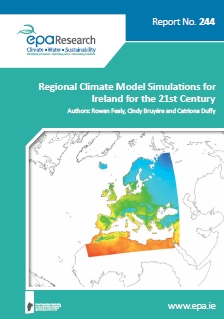
Authors: Rowan Fealy, Cindy Bruyére and Catriona Duffy, May 2018
Year: 2018
The model simulations represent Ireland’s contribution to the European component of the Coordinated Regional Downscaling Experiment (EURO-CORDEX), a World Climate Research Programme (WCRP) initiative to address climate information needs at the regional level.
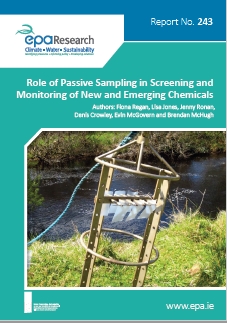
Authors: Fiona Regan, Lisa Jones, Jenny Ronan, Denis Crowley, Evin McGovern and Brendan McHugh, April 2018
Year: 2018
Passive sampling (PS) techniques are rapidly developing as very cost-effective state-of-the-art tools for identifying and measuring ultra-trace micropollutants in water.
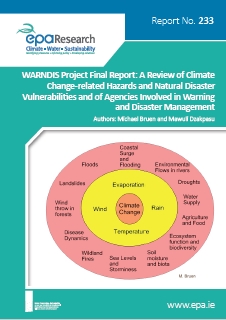
Authors: Michael Bruen and Mawuli Dzakpasu, March 2018
Year: 2018
The purpose of this study was to identify and review the main types of natural disasters that may be impacted by anticipated climate change; identify the key agencies involved; assess their roles and capabilities; and identify existing and new potential data streams to assist with warning and disaster management.
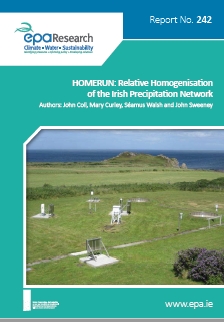
Authors: John Coll, Mary Curley, Séamus Walsh and John Sweeney, March 2018
Year: 2018
Long instrumental records are rarely, if ever, homogeneous and most decade-to-century-scale time series of atmospheric data have been affected by changes caused by climatic and/or non-climatic factors. Nevertheless, accurate climate data are a prerequisite for basing climate-related decision-making on, and quality-controlled homogenised climate data are becoming integral to efforts across many countries to deliver climate services.
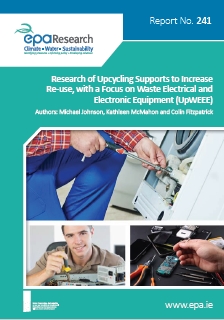
Authors: Michael Johnson, Kathleen McMahon and Colin Fitzpatrick, March 2018
Year: 2018
This report provides a range of recommendations aimed at supporting preparation for re-use of waste electrical and electronic equipment (WEEE) that will support the extension and development of this activity in Ireland.
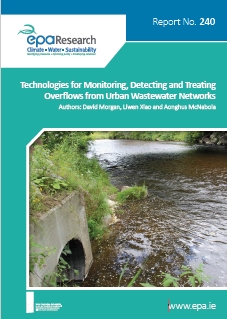
Authors: David Morgan, Liwen Xiao and Aonghus McNabola, March 2018
Year: 2018
In Ireland, most urban areas are drained by combined sewer systems, which convey wastewater and stormwater in a single pipe. During rainfall the capacity of combined sewers may be exceeded, leading to untreated discharges to receiving waters via storm water overflows (SWOs), which are a source of microbial pathogens.